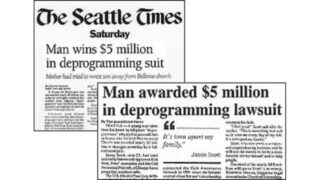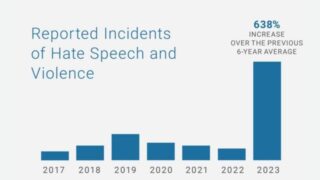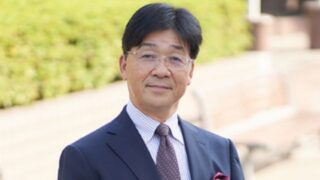The names of the Russian anti-cult organizations disappeared from the European federation’s website after the invasion of Ukraine. Now they confess they are still part of FECRIS.
by Massimo Introvigne


There is an important question about the European anti-cult federation FECRIS: its relationship with its Russian affiliate organizations, which have slandered Ukraine since at least 2014 and are now enthusiastic supporters of the Russian invasion. They contribute to Russian propaganda by spreading the fake news that the Ukrainian government is allegedly dominated by “cults.”
FECRIS states that it is against the Russian invasion, but this cannot be good enough if it continues to be represented in Russia by some of the most ferocious anti-Ukrainian agitprop peddlers.
Knowing that it had a Russian problem, FECRIS decided to camouflage its website. The Russian organizations that are part of FECRIS, still listed as such on March 31, 2022, disappeared from the list of its member organizations on its Web site in early April. However, it was unclear whether they had been expelled or FECRIS had just made a cosmetic adjustment of its website.
The names of FECRIS board members are filed with the authorities of France, where the organization is registered and headquartered. We checked periodically and the worst Russian anti-cultist, Alexander Dvorkin, continued to be indicated as a board member. CESNUR, the parent organization of Bitter Winter, wrote to FECRIS asking whether the Russian affiliates were still part of the federation and Dvorkin was still a board member, but never got any answer.
Last month, on November 11, 82 Ukrainian academics, including all the leading scholars of religion in the country, wrote to French President Macron asking him to discontinue the financial support France continues to offer to FECRIS, given the fact that the anti-cult federation maintains its relationship with Russian organizations that give an active and important propaganda support to the invasion of Ukraine.
The Ukrainian academics knew that FECRIS would have answered, as it did, that it also has two Ukrainian affiliate organizations. They explained that one is notoriously pro-Russian and the other has been inactive for years, and at any rate neither went on record condemning the anti-Ukrainian propaganda by the Russian branches of FECRIS.
The letter generated an unexpected development, which in a way solved the problem of whether FECRIS just went through the motions of discontinuing its relationships with its Russian affiliates or expelled them.
The Russian FECRIS affiliates are in turn part of a national anti-cult organization called Russian Association of Centers for Religious and Cultic Studies (РАЦИРС / RATsIRS). Its president is Alexander Dvorkin and its deputy president is Archpriest Alexander Novopashin, a fanatical anti-Ukrainian anti-cultist from Novosibirsk. They are also the representatives of the Moscow “Center for Religious Studies in the Name of Hieromartyr Irenaeus of Lyon,” in itself an affiliate organization of FECRIS. The local Novosibirsk anti-cult organization Information and Consultation Center on Cultism at the Cathedral in the name of the Holy Prince Alexander Nevsky, led by Novopashin, is another Russian affiliate of FECRIS.


Novopashin decided to answer the letter of the Ukrainian scholars to Macron. He had his answer published by 4s-info and then reproduced on his own website. Presumably without knowing most of those who had signed, he gratuitously insulted them by writing that they are “82 Ukrainian cult apologists who call themselves scientists.” Some of those who signed have never written about “cults,” but this is not the most interesting part of Novopashin’s answer.
Novopashin wrote that the Ukrainian “pseudo-scientists” attacked “the European Federation of Centres for Research and Information on Sects and Cults FECRIS, registered in France. Our Information Center at the Cathedral in the name of the Holy Prince Alexander Nevsky is a corresponding member of this organization. But the complaint primarily mentions a well-known Orthodox theologian, my friend, Professor Alexander Leonidovich Dvorkin, and, well, me, your humble servant.
Professor Dvorkin is the President of the Center for Religious Studies in the Name of Hieromartyr Irenaeus of Lyon, representing FECRIS in Russia. And I am the vice president of the Center. The main target of cult apologists and cults, as a leading Russian expert on cults, is Professor Alexander Leonidovich Dvorkin. The letter was sent in the hope that the President of France would influence FECRIS to expel Professor Alexander Dvorkin and myself from the organization.”
As Catholics say of Rome, “Novosibirsk locuta, quaestio soluta”: when Novosibirsk has spoken, the question has been solved. If those Novopashin sees as the villains in the story “hope” that he and Dvorkin would be expelled from FECRIS, it is clear that they have not been expelled yet. In fact, Novopashin confesses that his center in Novosibirsk is still “a corresponding member of the organization,” as it was before the 2022 invasion of Ukraine. Dvorkin’s Center for Religious Studies in the Name of Hieromartyr Irenaeus of Lyon is still “representing FECRIS in Russia.” Nobody has expelled them. Why their names have disappeared from the FECRIS’s website is a question that FECRIS may perhaps answer.
In the meantime, Novopashin clarifies, for the benefit of both the Ukrainian academics and FECRIS, that he and his friends continue to actively “support the special operation in Ukraine.”









